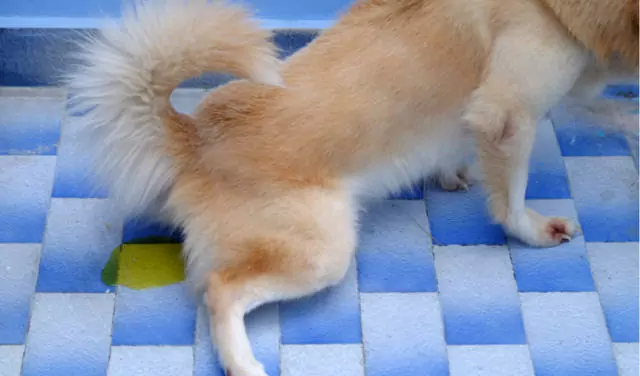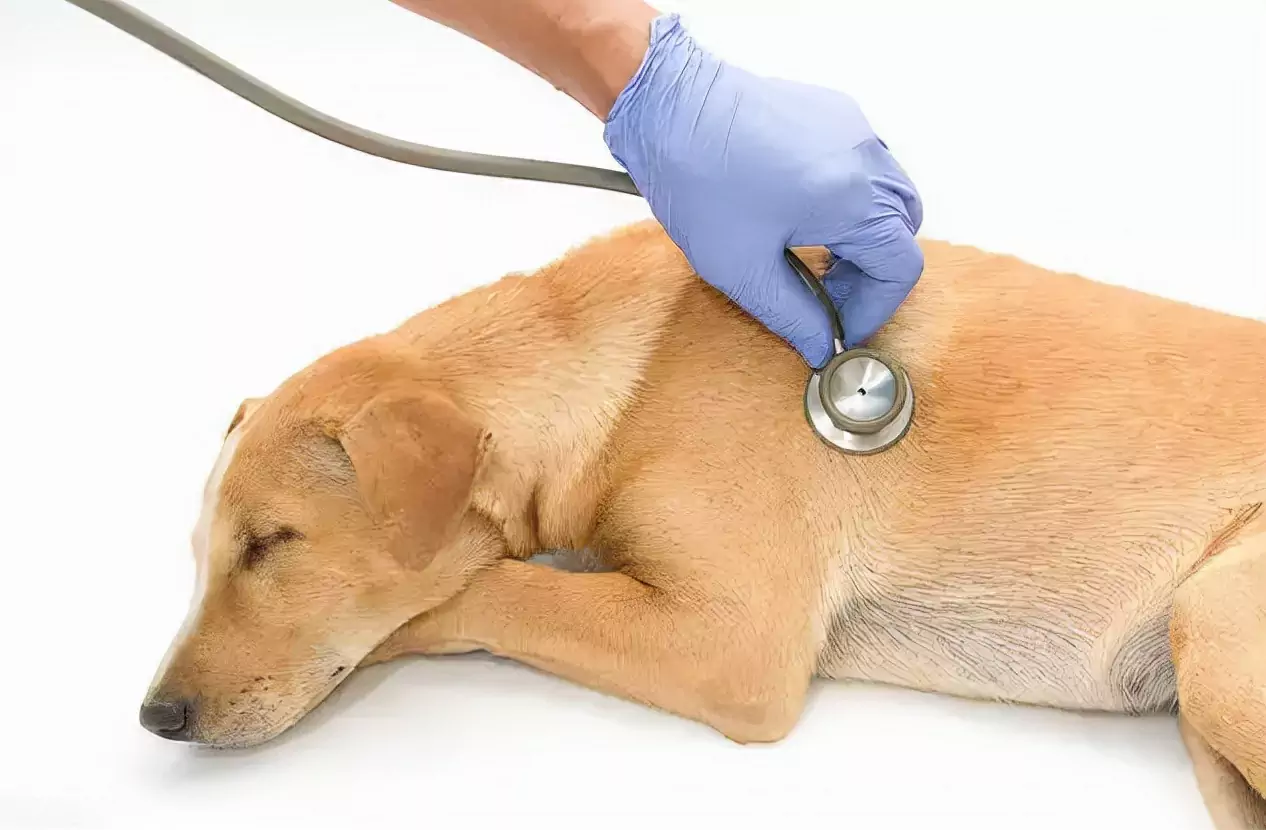Can dogs get urinary tract infections?
2022-08-04
Dogs, like people, can get sick from bacterial infections, such as a urinary tract infection, or bacterial cystitis, which is considered a relatively common infection in dogs and affects them greatly. So how is this disease contracted and what should dogs be aware of?
I. What can cause urinary tract infections in dogs?
The main cause of urinary tract infections in dogs is bacteria, fungi, or parasites in the urinary tract (kidneys, ureters, bladder, and urethra). Bacteria enter your dog's body through the entrance to their urethra. They become infected when the dog's feces or other bodily digestive matter comes in contact with the area. The urine in a dog's bladder itself should be sterile, but if bacteria enter the dog's bladder, they can grow and replicate, leading to a dog urinary tract infection. Of these, E. coli and E. deformations are the most common urinary tract infections.
In addition, dogs with more skin folds or who are overweight are more susceptible to urinary tract viruses than other dogs.
And on an age level, dogs over seven years old have an increased chance of developing this disease.
II. What are the symptoms of a urinary tract infection in dogs?
A very common symptom of a dog with a urinary tract infection is that urination becomes more frequent. You will notice that the dog will do the peeing more frequently. If the dog is a female, it may squat frequently, just like male dogs do when they lift their legs to make a mark.
And in addition to the symptoms of frequent urination, dogs with urinary tract infections may have some of the following signs.
1. the dog may develop a fever.
2. the dog's urine will be bloody or cloudy.
3. the dog will not urinate as smoothly and will whine or complain and appear to be in pain.
4. the dog will frequently lick the urethra.
5. the dog appears to urinate frequently.
If some of these symptoms appear, it means that the dog's state is not right, of course, it could be a urinary tract infection, but other problems cannot be ruled out; if we find that the dog's behavior has changed or is acting painfully, then it is recommended to take the dog to the vet first. The reason why it is recommended that you take your dog for a routine checkup is that the symptoms of urinary tract infections in dogs sometimes do not show up particularly clearly.
What can be done to prevent urinary tract infections in dogs?
There is no foolproof method of disease prevention, but if we make some improvements in advance, we can allow our dogs to live more healthily.
1. Minimize the growth of bacteria. Wash your dog's water bowl often, especially if you see your dog drooling into the bowl or have food floating in the water, help your dog dump these, clean the water bowl and then replace it with fresh water for your dog to drink.
2. Do not let the dog hold urine for a long time. Give your dog enough time to relax their bladder.
What is a dog urinary tract infection? What are the symptoms? How can it be treated?
3. Keep your dog neat and hygienic. If the dog's hair is long, trim it regularly. If the dog is dirty, it should be given a bath to clean it up or use wet wipes to wipe the dog to remove bacteria.
4. Give your dog a healthy diet. If conditions allow, consider improving your dog's diet to promote their urinary health. There are also prescription foods on the market today that specifically target bladder problems in dogs. Also, some dogs may take supplements such as glucosamine. These dietary modifications or nutritional supplements helps to create a protective mucus layer on the walls of your dog's bladder to prevent the entry of bacteria. Of course, if you are going to change your dog's diet, it is a good idea to talk to your dog's vet first to see if this is recommended.

Three: What is the treatment for a urinary tract infection?
If a dog is tested and has a urinary tract infection, some doctors will use antibiotics to treat the dog.
And in addition to this type of treatment, we can also treat urinary tract infections in our dogs at home if the doctor allows.
1. Add a teaspoon (for small dogs) or 1-2 tablespoons (for large dogs) of apple cider vinegar to your dog's water bowl. Repeat twice a day for 7 to 10 days, depending on the severity of the urinary tract infection. If some dogs don't like the taste of apple cider vinegar, then you can change the dog's water without apple cider vinegar afterward.
2. Let the dog soak in hot water for ten minutes (the water should not be too hot and the water level should not be too deep) to help relax the dog's muscles. Then wash the dog with mild soap, paying attention to the dog's genital area, don't rub the soap on this area for too long, and be sure to rinse this area with clean, warm water. Do this every few days until the infection is gone.
3. Make sure your dog drinks plenty of water, so you can keep a few extra water bowls in the room; change the water once or twice a day to make sure it is clean and fresh.
4. You can crush a 500 mg vitamin C tablet and mix it in your dog's dog food once a day for 7 days.
5. Give your dog 1-3 tbsp of pure, natural citrus juice, and no sugar, as this will exacerbate the dog's infection symptoms.
6. Add about two teaspoons of chopped blueberries or cranberries to your dog's food for seven to ten days, doing this twice a day.
Dogs can also recover faster from urinary tract infections when they have these complementary treatments at home under the guidance of a doctor.
Has your dog ever had a urinary tract infection? How did you manage it?
Fourth, how to prevent urinary tract disease in dogs
Although urinary tract diseases and stones in dogs can be relatively dangerous, even fatal, the good news is that they are also easy to prevent.
1. Keep urine acidic. A better way to do this is to use meat as your dog's base food, this is an important source of acidity.
2. Keep the immune system well-functioning. Tasty food also helps build a strong immune system, which allows the body to recognize urinary tract problems faster. If the body senses a problem, it will show through the dog's urine, allowing the owner to know that the dog's body is changing and needs attention.
3. Keep your joints healthy. As with humans, older dogs tend to suffer from many joint problems, so keeping your dog's joints strong is a good way to help your dog bend over well and defecate smoothly. If you can, we can give your dog proper chiropractic care.
4. Keep your dog hydrated. It is impossible to emphasize here how much water to give alone can help keep the urinary tract healthy. Keeping the right amount of water will dilute undesirable substances such as bacteria or mineral buildup that may create problems.
5. Have your dog urinate regularly. If you hold urine for a long time, it can make the urinary tract more susceptible to bacterial infections. Urine that accumulates in the bladder over time may also cause the bladder to stretch, which can damage it over time.
6. Active follow-up. If your dog has a history of urinary tract infections, you can get sound advice from your vet, such as maintaining a special diet to help keep the urinary tract healthy. Cranberry extract (highly concentrated, not just from tart cranberry juice) can act as a preservative for the bladder wall and can prevent urinary tract infections.
7. Keep your dog hygienically clean. It is also very important to keep the area around the external urethra hygienically clean and free of hair and debris.
8. Probiotics also help to improve the body's immune system and create healthy intestinal bacteria.
Finally, regular checkups are essential if you want your dog to stay in optimal health.
Previous:Can dogs get diabetes?
Was this article helpful to you?
Other links in this article
Nederlands:
Kunnen honden urineweginfecties krijgen?
português (Brasil):
Os cães podem contrair infecções do trato urinário?
日本語:
犬は尿路感染症になるのか?
中文简体:
狗会得尿路感染吗?
中文繁体:
狗會得尿路感染嗎?
Comments

Why is my dog throwing up?

Why does my dog keep coughing?

How many months is a dog pregnant? Signs and Phenomena of Dog Pregnancy

How do dogs grow fleas? Ways to get rid of fleas on dogs

Can dogs get diabetes?

Can dogs be depressed?

Why does my dog keep sneezing? Causes of Sneezing in Dogs

Can dogs catch a cold? Cold and Flu Symptoms in Dogs

What causes heart disease in dogs

Can dogs get urinary tract infections?







